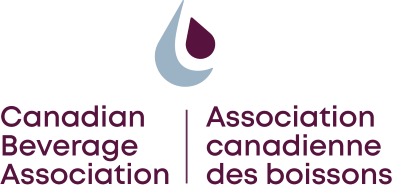TORONTO, Jan. 15, 2018 /CNW/ - Today, the Canadian Medical Association Journal Open published a study from the University of Waterloo entitled, Adverse effects of caffeinated energy drinks among youth and young adults in Canada: a Web-based survey. The Canadian Beverage Association has issued the following statement in response.
Caffeine is one of the most heavily researched food and beverage ingredients. This includes research from Health Canada, the European Food Safety Authority and the United States Food and Drug Administration. All of these recognized authoritative scientific bodies have deemed caffeine and more specifically, non-alcoholic caffeinated energy drinks (CEDs) to be safe for consumption by youths and adults. 1 2
The study published in the CMAJ Open, groups non-alcoholic caffeinated energy drinks, regulated by Health Canada as foods, together with dissimilar non-food products, namely alcoholic beverages with caffeine and "energy shots". These other products are not considered CEDs by Health Canada, and are regulated as non-food products. As such, the broad conclusions drawn about the purported negative effects of "energy drinks" are misleading.
Health Canada has deemed energy drinks safe for consumption by both adults and teens using a science- and fact-based approach. For adults, "…two servings of a typical energy drink per day would not be expected to pose a health risk for the general adult population." For teens 12-18 years of age, "the caffeine content of one or two servings of a typical energy drink (80mg caffeine/serving) would be unlikely to pose an acute health hazard."3
As energy drinks are regulated by Health Canada as a food, they follow all nutrition labelling provisions plus a few product-specific requirements. Labels must specifically note that energy drinks are not recommended for children, pregnant or breastfeeding women, or people who are sensitive to caffeine and must advise maximum daily consumption.
The research is clear, CEDs are now available in more than 165 countries and have been in the Canadian market place since 2004. Energy drinks have been thoroughly tested and are considered safe by the world's leading health authorities.
For most Canadians, energy drinks are not a significant source of total caffeine intake. Regardless of the can size, a standard mainstream energy drink has less than half as much caffeine as a similar-sized cup of typical coffeehouse coffee. 4 According to Health Canada, 90 per cent of the average Canadian's daily caffeine intake comes from coffee and tea beverages, leaving 10% from other sources.5
The Canadian Beverage Association is the national trade association representing the broad spectrum of companies that manufacture and distribute the majority of non-alcoholic refreshment beverages consumed in Canada. For more information, visit:
energydrinkinformation.ca
CBA energy drink marketing code
| _______________________________________ |
| 2 European Food and Safety Authority – Caffeine Risk Assessment http://www.efsa.europa.eu/sites/default/files/corporate_publications/files/efsaexplainscaffeine150527.pdf |
| 3 Energy Drinks: An Assessment of the Potential Health Risks in the Canadian Context, Joel Rotstein, Jennifer Barber, Carl Strowbridge, Stephen Hayward, Rong Huang and Samuel Benrejeb Godefroy: http://cdn.intechopen.com/pdfs/45380/InTech-Energy_drinks_an_assessment_of_the_potential_health_risks_in_the_canadian_context.pdf |
| 4 Compiled using information from the following databases: http://www.hc-sc.gc.ca/fn-an/securit/addit/caf/food-caf-aliments-eng.php , Starbuck Nutrition by the Cup brochure http://globalassets.starbucks.com/assets/7cd1d989cd0c4ddba75b22d53f7af8bc.pdf |
| 5 Health Canada, Caffeine in food https://www.canada.ca/en/health-canada/services/food-nutrition/food-safety/food-additives/caffeine-foods/foods.html |
SOURCE Canadian Beverage Association

please contact: Jeff Rutledge, Senior Director, Communications, Canadian Beverage Association, T: 416-362-2424 | M: 647-462-3761, [email protected]

Share this article